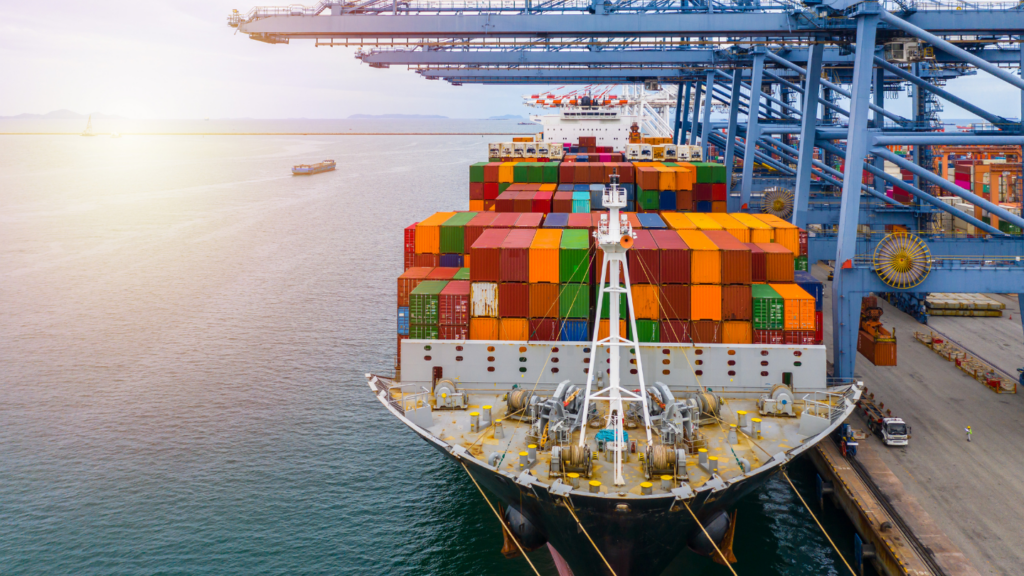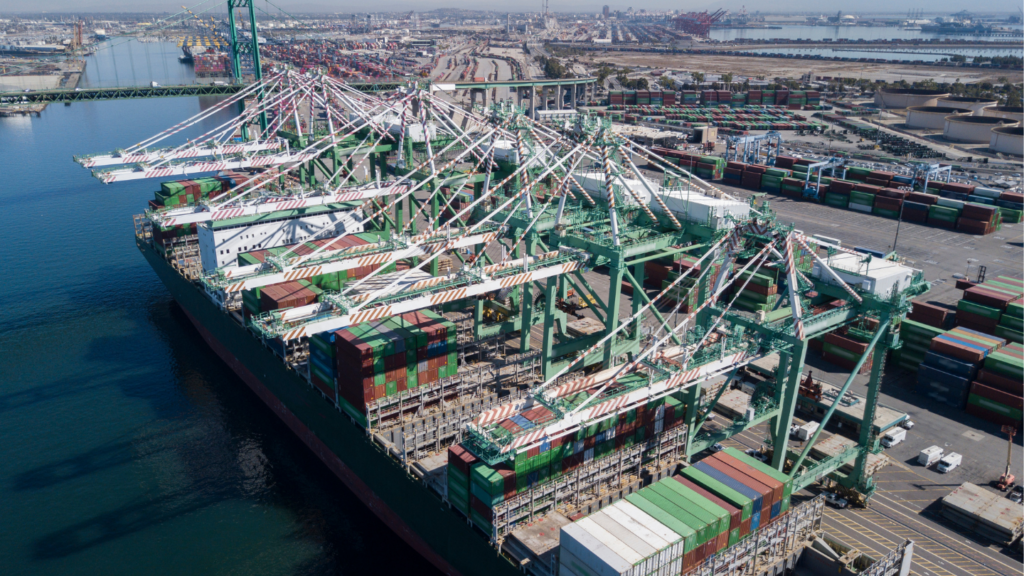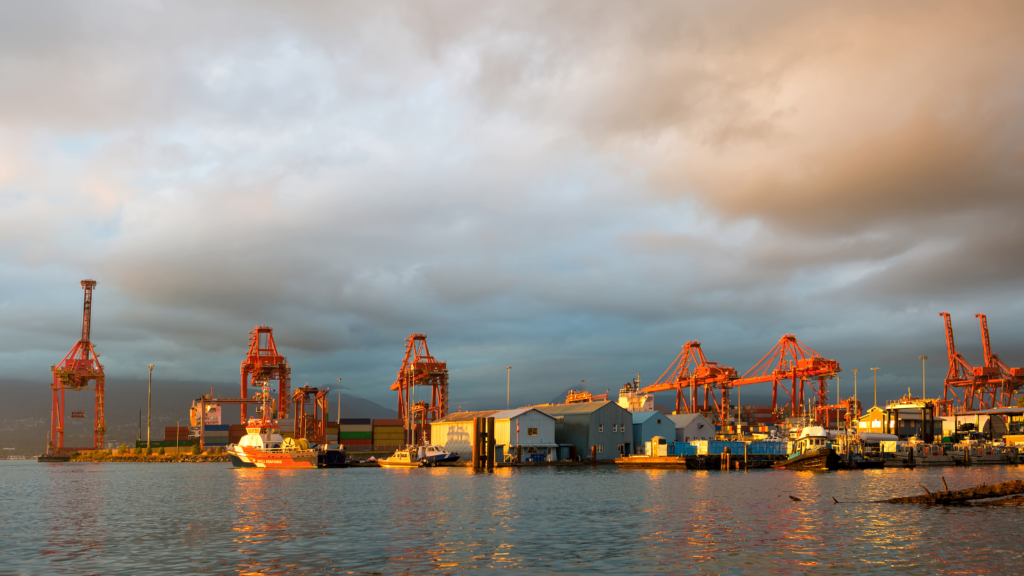Blank Sailings, Shipping Reform, and Saturday Strike?
Your weekly All-Ways round-up of Supply Chain news.
Slowing Sailings
Asia-Europe blank sailings are at a two-year low this summer.
China reported a 12.4% drop in its June exports which would indicate that the 1.3% drop in volume in May will continue into June. In July, 8.7% or 199,051 TEUs of capacity were canceled. As of now, August is set to have 6.4%, or 140,710 TEUs in blank sailings, and 2.5%, or 55,391 TEUs, in September.
“On an aggregate level for Asia-Europe, the last time we saw such low blank proportions was in the summer of 2021, as COVID-19 restrictions were lifted once again for the summer,” said Sea-Intelligence shipping analyst Adam Szabo.
The cause? High inflation and reduction in global demands.
However, throughout the year, aggregate capacity is expected to continue growing attributed to the deliveries from the massive order book making its way into the market.
President Approves
Since 1998, there have been no major changes in regulations related to US container trade. That all just changed.
Earlier this month, the House of Representatives passed the Ocean Shipping Reform Act (OSRA) of 2022 by a landslide vote. Just a few days later, on June 16, Biden signed the bill into law.
Under the legislation, the Federal Maritime Commission (FMC) is given more power to address and enforce the law for any unfair business practices on the part of ocean carriers and marine terminal operators. The bill is widely supported by many associations.
Some of the changes include -
➡️ Making sure that the maritime transportation system is competitive and efficient
➡️ Requiring shipping exchanges to be registered with the FMC under the National Shipping Exchange Registry
➡️ The FMC will be required to publish new reports on regulated ocean common carriers
➡️ Charges assessed by a common carrier can now be submitted as complaints to the FMC
➡️ Tightening the law for common carriers to include unreasonable refusal of goods, improperly assed charges, and detention, and demurrage invoicing that is inaccurate or incomplete
“The passage of OSRA is the result of five years of intensive efforts by U.S. agriculture exporters and importers to gain effective control over out of control ocean carrier practices. But it is not a culmination. It is the beginning of the next steps in which the Federal Maritime Commission increases its role as the agency Congress has empowered to protect and advance the interests of the U.S. shipping public,” said AgTC’s executive director, Peter Friedmann.
With expanded overweight comes an expanded budget. The FMC’s funding will be increased by 50% over four years from $32.9 million in 2022 to $49.2 million in 2025 to help increase staff.
“These changes will have a beneficial effect on how U.S. shippers are served and will bring more accountability to how ocean cargo services are provided. We will move promptly to implement the steps necessary to bring shippers the benefits of this legislation, beginning with the rulemaking addressing export shipments,” stated Daniel Maffei, FMC Chairman.
However, Biden’s recently put the blame for inflation, high consumer costs, and supply chain disruption on ocean carriers’ lack of competition. This did not sit well with the World Shipping Council which supported OSRA.
“We are appalled by the continued mischaracterization of the industry by U.S. government representatives and concerned about the disconnect between hard data and inflammatory rhetoric. The increased rate levels we have seen over the past years are a function of demand outstripping supply and landside congestion, exacerbated by pandemic-related disruption. Until the import congestion is remedied, export congestion will persist. Ocean carriers continue to move record volumes of cargo and have invested heavily in new capacity — America needs to make the same commitment and invest in its landside logistics infrastructure,” said the WSC.
Retracted Notice
While the Canadian Parliament is in recess, what can be done to help end the uncertainty regarding the West Coast Ports?
After a 13-day strike at the ports of Prince Rupert and Vancouver, a tentative agreement, which was supposedly fair and balanced, was rejected by a caucus of ILWU Canada.
After an ILWU strike on Tuesday night, a federal labor board ruled that the strike action was illegal. What followed Wednesday was a 72-hour notice of a strike, set to start on Saturday morning. But to everyone’s relief, that was retracted hours later.
Mind you, the ports have just barely begun to restore the flow of cargo.
ILWU Canada President Rob Ashton stated that a four-year contract is too long in the current climate - “we must be able to readdress the uncertainty in the world’s financial markets for our members.”
So what is it that ILWU Canada wants? More jurisdiction and more money. With higher living costs and record profits in 2021 and 2022, the ILWU feels that employers should’ve appropriately compensated workers.
The British Columbia Maritime Employers Association (BCMEA) stated that ILWU Canada is “choosing to further harm Canada’s economy, international reputation, and most importantly, to Canadians, their livelihood, and all those that rely on the stable supply chain,” in rejecting the deal.
Labor Minister Seamus O’Regan and Transport Minister Omar Alghabra put out a joint statement that they’re looking at other options but the ports must remain open. But while Parliament resolved the strikes at the Port of Montreal in 2021, a quick resolution is not likely to come about. The liberal and conservative parties will likely have to form a coalition to make this happen.




